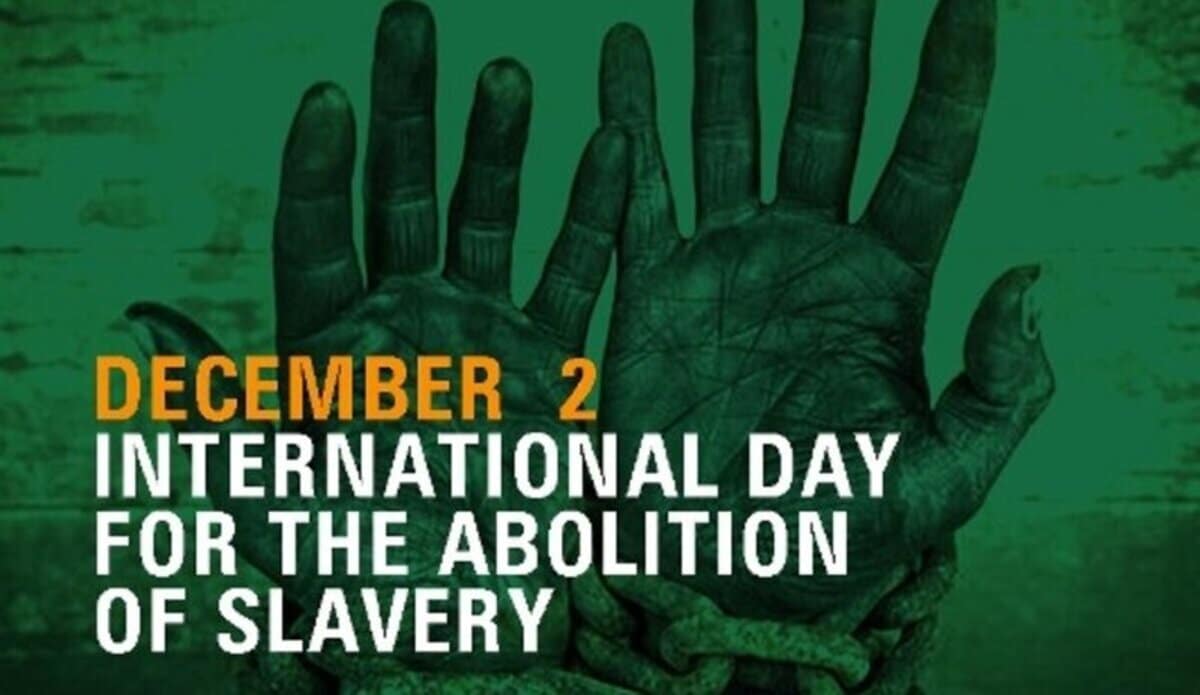Every year on December 2, the International Day for the Abolition of Slavery focuses on the eradication of contemporary slavery, such as trafficking in persons, sexual exploitation, child labour, forced marriage, and the forced recruitment of children for use in armed conflict. Sadly, this day also draws attention to the fact that slavery still exists in the world today.
Slavery has had many different forms throughout history. Today, some traditional forms still exist, while other forms have emerged. These forms of slavery are the result of long-standing discrimination against the most vulnerable groups. For instance, descent-based slavery – when a child is born into slavery because their ancestors were slaves – still exists in many parts of the world. Their ‘slave’ status continues to be passed down via the maternal line.
The exploitation of migrant workers is also an example of the lasting effect of slavery. These workers are paid poorly, given no legal immigration status, and are forced to live in unsanitary living conditions, while rich and powerful investors continue to profit.
“We must do the work to educate ourselves and the people around us.” noted OPSEU/SEFPO President Warren (Smokey) Thomas. “We must work to dismantle all forms of systemic racism and discrimination, and never put up with intolerance. Those in positions of power must acknowledge the crimes of the past, and implement reparations to address them as well.
“We must ensure that the mistakes of the past aren’t repeated in the present and the future,” Thomas added. “When we think about these reparations, especially in the form of payments for past injustices, we must educate ourselves on the impacts of slavery, and how it has shaped Black people’s lives today.”
OPSEU/SEFPO’s First Vice-President/Treasurer Eduardo (Eddy) Almeida understands the historical implications and ongoing effects of the legacy of slavery in Canada.
“As an organization, we’re committed to justice and equity for all,” he said. “We continue to rethink and refine our practices and beliefs. We encourage everyone to speak up when they see or experience discriminatory behaviour and to educate everyone on the historical and current effects of slavery and racism in our union, workplaces and communities.”
The International Labour Organization estimates there are nearly 40 million people enslaved in the world today. This includes people forced into sexual exploitation, forced marriage and forced labour imposed by those in power. More than half of the people trapped in forced labour are doing domestic work and construction, as well as migrant workers on farms.
Peter Thompson, chair of OPSEU/SEFPO’s Coalition of Racialized Workers, says the abolishment of slavery is an ongoing process.
“The reality is that modern slavery continues to exist today in various forms and structures,” he said. “Those in positions of power and privilege need to acknowledge both the wrongs of the past and the ongoing enslavement of people.
“They also need to implement reparations so that it never happens again,” Thompson added.
It is vital that, as members of the labour movement, we commit to ending modern-day enslavement which affects the poorest, most socially excluded groups. At OPSEU/SEFPO, we continue to work to address the wrongs and mistakes of the past and work towards justice, liberation and equity for all.
